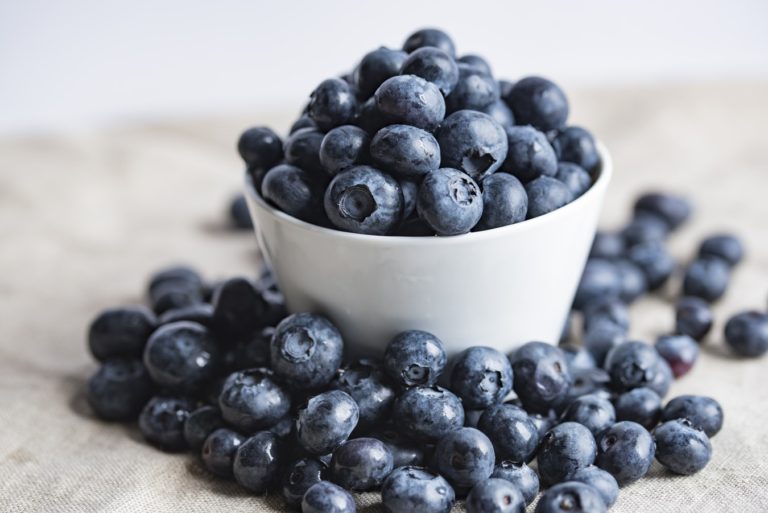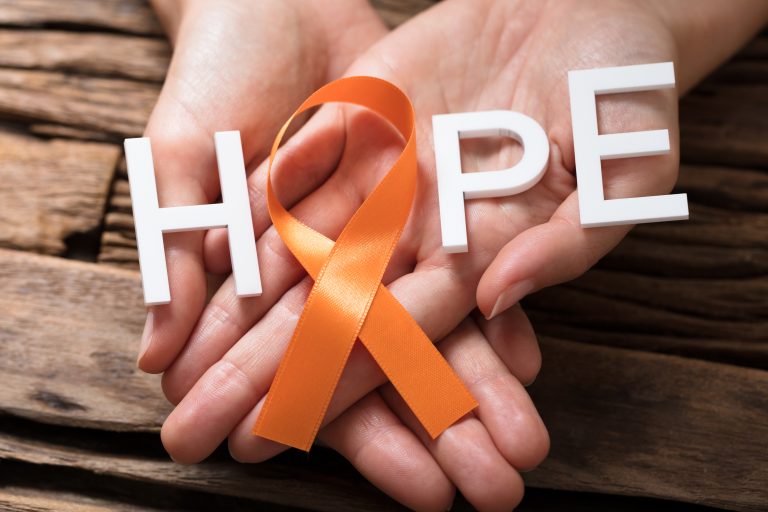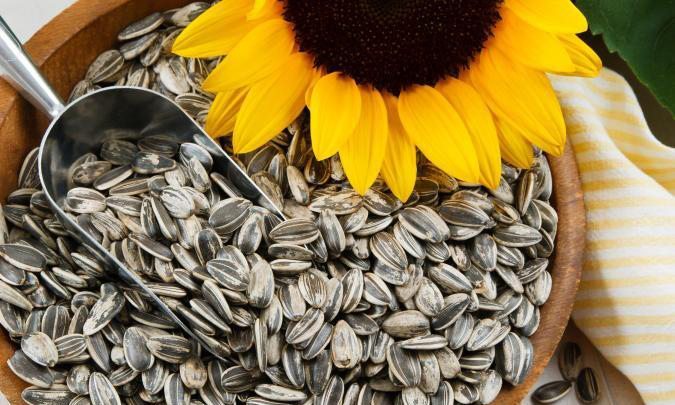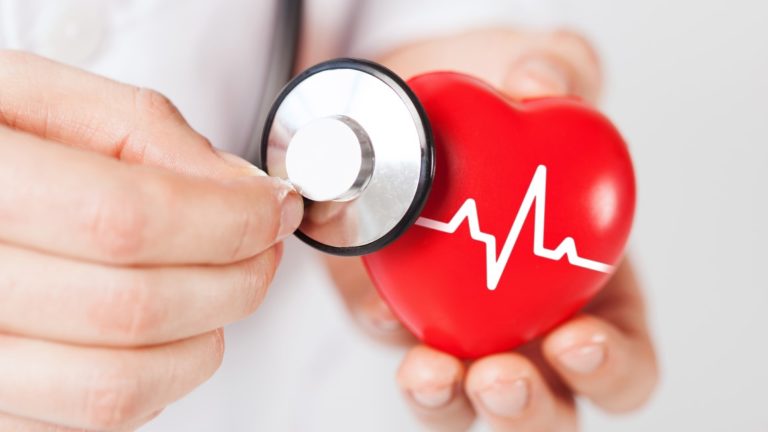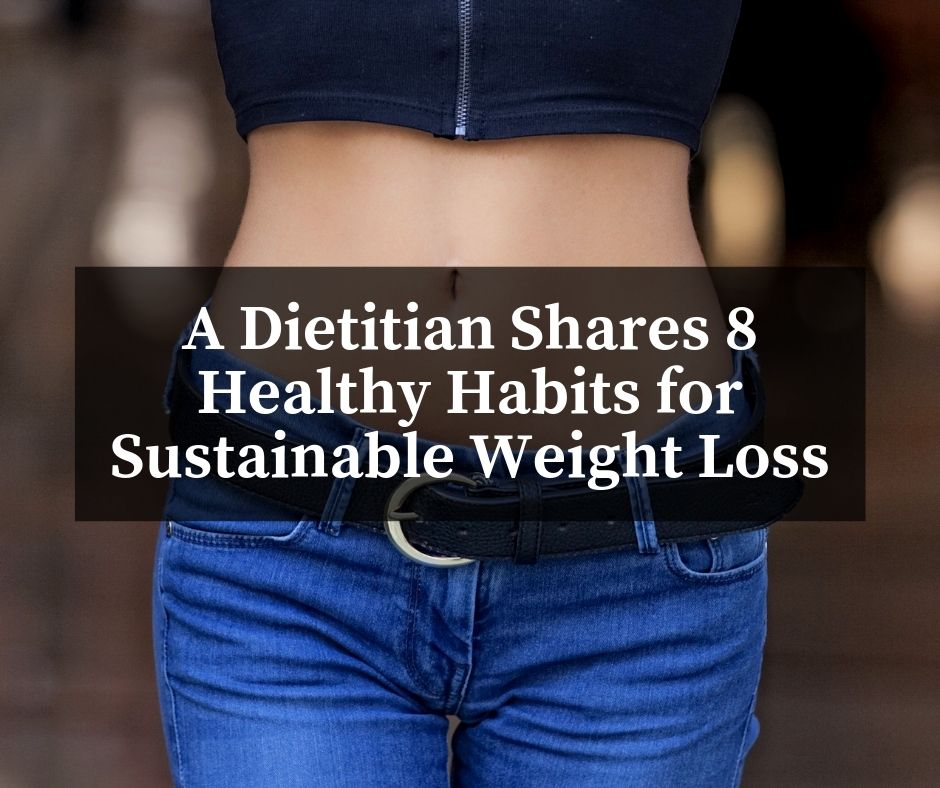
Losing weight shouldn’t feel like a chore, and it shouldn’t feel so restrictive that you hate every second of your “diet” and then give up. Registered dietitian Emily Tills, MS, RDN, CDN, wants you to enjoy your weight-loss journey. She specifically works with women on how to lose weight “without feeling restricted and on a diet.” She coaches her clients to use habit-based methods. “I often say ‘this is something you can do for the next 90 years, not the next 90 days.'”
Get Enough Sleep
Getting enough sleep is vital for weight loss, especially when you’re working out regularly. Emily said, “While we sleep, our body is in repair mode from the day and preparing you for the next day.” Sleep repairs your muscles and gives you energy for tomorrow’s workout.
Getting adequate sleep also helps balance out your hormones, specifically the hormones that control hunger (ghrelin) and fullness (leptin). If you’re deprived of zzz’s, ghrelin levels rise and leptin levels fall, causing you to feel hungrier.
Not only that, but a study from 2013 found there’s a decrease in BMI and fat mass in adults when sleep duration increases. Aim to get seven to nine hours of sleep a night.
Hydration Is Key
One of the first things Emily addresses with her clients is hydration and what they are drinking. In her experience, most people aren’t drinking enough water throughout the day, which makes them feel lethargic and sluggish. When you feel tired, you tend to reach for high-calorie food for a pick-me-up.
Here’s Emily’s suggestion: “Divide your bodyweight in half, and that’s a good baseline for how many ounces you should be drinking daily.” She said to set small goals with this. Aim for half your goal by lunch and the other half by dinner.
Set Small Weight Goals
If you have a lot of weight to lose, 20 pounds or more, Emily suggested setting small, attainable goals along the way to help you stay focused.
“You may need to lose 60 pounds, but break it down to one to two pounds a week for a slow, steady weight loss that still moves you closer to your goals,” Emily said. Reaching your mini goal each week will help keep your motivation high.
Don’t Try to Change Everything Overnight
You may know that you have a few not-so-healthy habits. Maybe you drink too much soda or get fast food or takeout too often. If you try to quit these habits cold turkey, Emily said, it will only “increase your cravings and make it hard to break the habit.”
Instead, Emily recommends slowly decreasing the amount of times you reach for a can of soda or visit McDonald’s each week. “If you’re used to having three sodas a day, see if you can cut it down to two successfully for a week or two, then decrease again,” Emily said. Same with fast food; rather than stopping for breakfast four times a week, cut it down to three mornings, then two, and so forth each week. Find a not-so-healthy habit you’re trying to break, and remember that slow and steady is likely to be more successful.
Increase Your NEAT
NEAT stands for non-exercise activity thermogenesis; it’s the calorie burn that happens outside of organized exercise like going to the gym or taking a cycling class. Emily said, “When you increase your NEAT, you can increase your overall calorie burn throughout the day without it feeling like a chore.”
Some ways to increase NEAT are by parking farther from the office door, vowing to take the stairs for an entire day, getting up to walk around every hour, or going to the bathroom on a different floor. These are all ways you can increase your movement and calorie burn, without having to dedicate more time to the gym.
Get Protein at Every Meal
“Protein is one of the most underconsumed nutrients my clients have before they start working with me,” Emily shared. They have toast for breakfast, soup for lunch, and a salad for dinner. They end with only 40 grams of protein at the end of the day and wonder why they are starving.
Try pairing eggs with your toast or adding protein powder in a smoothie at breakfast. Eat yogurt or beans with lunch. For dinner, add a hearty meat or plant-based protein to your meal like tofu to increase your daily protein. “Aim for 20 to 30 grams of protein at meals, and increase if you still feel hungry,” Emily said.
Aim For at Least 3 Food Groups at Each Meal
If you’re only eating vegetables at lunch and you wonder why you’re hungry two hours later, it’s probably because you didn’t get in a big enough variety of nutrients, Emily explained.
“Pairing your vegetables with a whole grain and protein source will not only increase the amount of vitamins and minerals you’re getting, but also provide you with protein and fat that’ll help fill you up and keep you fuller for longer.”
Schedule In Your Snacks
After lunch, rather than trying to make it all afternoon without eating anything, only to inhale all the snacks the second you get home at night, Emily said to schedule in a midafternoon snack. “When you make time for a snack that has at least two food groups in it, you’re less likely to feel starving when you get home from work and eat the entire pantry.”
Portion out your snack and pack it in your lunch to save time, and try to keep your snack around 200 calories.





